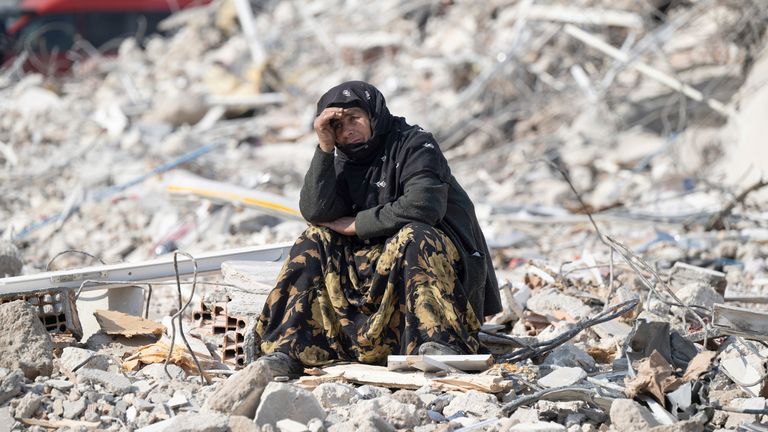
I saw the outpouring of support across the world. It was heartwarming. Faith in humanity is restored. As the days went by, pleas from people in Northern Syria (5M+ people) bombarded Twitter. Not a single external aid team had arrived yet! How is this possible? We saw the press releases and the pictures. Algeria, Egypt, Tunisia, Libya, Bahrain, UAE, Lebanon, and Iraq have all sent rescue teams and planes full of food, meds, and equipment. Oh yes, I remember now, they arrived at Al-Assad's airports.
Remember the person who has killed over 300,000 civilians in the past decade? Yes. The same regime that drops barrel bombs for breakfast and operates slaughterhouses that make Guantanamo look like a holiday destination. They're now entrusted to "deliver aid" to the Syrian people. One can't escape the cynical thought that these countries' regimes took advantage of this circumstance to grease the wheel with Al-Assad.
The UN "security" council's blockade of all aid to northern (rebel-controlled) Syria meant that the only path into the earthquake-affected zones was through Bab al-Hawa crossing on the Turkish border. The widespread damage to road infrastructure leading up to the border delayed things. It took more than 72 hours for the first UN caravan to arrive. Saudi's aid among others arrived on day 4. No amount of infrastructure damage excuses this negligence. The coming days and weeks will likely reveal the thousands of deaths that could have been prevented.
I'm not brushing off the large-scale damages and human suffering in Turkey and I urge individuals to support in every way. I wanted to point out the stark differences in response between neighboring regions that are only separated by a land border. Thousands of volunteers were on-scene in Turkey just a few hours later. Erdogan announced round-the-clock search, rescue, and medical support, monetary compensation, and thousands of free hotel rooms for survivors. The Syrian regions controlled by Al-Assad and Iranian militias received minimal support. Northern Syria was left in the dust.
This failure from the international community is not the first nor will it be the last. The Syrian people continue to be neglected as more allies leave them stranded. Just like with Afghans and Iraqis, people's hopelessness translates into inaction. As effective altruists, we pride ourselves on identifying neglected problems and communities. We believe in the power of activism as well as the power of the dollar. I'm not well versed in the former but I can point toward two organizations that are effective with the latter.
- Syria civil defense (The white helmets): A volunteer team of 3,000 people who form the largest search & rescue team in rebel-controlled Syria (5M+ people) which, to this day, gets bombarded by the Assad regime. You may have seen the Netflix documentary on this brave team. They managed to save 120,000+ lives since the start of Al-Assad's assault. Here's an excerpt from their website: "Our work saving lives and documenting war crimes have made us high-profile targets for the Syrian Regime and Russia. They have bombed White Helmet centers more than 350 times. 282 volunteers have been killed since 2013, more than half of these in double-tap strikes, where warplanes return to the site of an attack in order to bomb White Helmet volunteers who have rushed to the scene to rescue civilians. In areas where the Syrian regime has retaken control our volunteers are hunted down and detained"
- Molhamteam: One of the few non-profits dedicated to Syrian refugees. A relatively transparent young team of volunteers and full-time staff with strong social media presence and 10+ years of experience under their belt. They are slowly adding long-term solutions like building permanent homes for internally displaced people but given the limited funding, donations are mostly dedicated to humanitarian emergencies.
I hope you found this helpful.

I was also bothered by this neglect. Donated 25$ to the White Helmets.
Thanks for this passionate post. Because of it I also donated to the White Helmets. For other readers I would suggest also considering Doctors Without Borders, but in general I have a lot of uncertainty about how best to help.
Oh my gosh, this is so heartbreaking. I never knew about the Syria situation, thanks for sharing this. Unfortunately I'm unable to donate but I will definitely share this among my network.